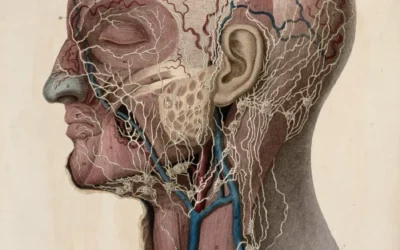
Who Was Kurt Lewin?
Kurt Lewin (1890-1947): Influential Psychologist and Social Scientist
Kurt Lewin (1890-1947) was a pivotal figure in 20th-century psychology, renowned for his groundbreaking contributions to social psychology, organizational behavior, and group dynamics. His work not only shaped theoretical frameworks but also pioneered practical applications, emphasizing the interaction between individuals and their environments.
Biographical Timeline
- 1890: Born in Mogilno, Prussia (now Poland).
- 1914: Earned his Ph.D. from the University of Berlin under Carl Stumpf’s supervision.
- 1921: Joined the Psychological Institute at the University of Berlin.
- 1933: Emigrated to the United States due to the rise of Nazism.
- 1935: Established the Research Center for Group Dynamics at MIT.
- 1940: Became a naturalized citizen of the United States.
- 1947: Passed away in Newtonville, Massachusetts.
Theoretical Contributions
Field Theory Lewin’s seminal concept of field theory revolutionized psychology by proposing behavior as a product of an individual’s psychological environment (“life space”). This holistic approach underscored the subjective nature of human perception and its influence on behavior.
Topological Psychology He further developed topological psychology, employing geometric models to visualize psychological life spaces. These models depicted how individuals navigate between goals, barriers, and paths, illustrating conflicts and resolutions within the psyche.
Group Dynamics Lewin’s pioneering studies in group dynamics explored how groups evolve, function, and influence individual behavior. He identified crucial factors such as interdependence, interaction, cohesiveness, and norms, laying foundations for modern studies in organizational behavior.
Leadership and Social Change His insights into leadership highlighted democratic styles as most effective, promoting productivity and morale over autocratic or laissez-faire approaches. Lewin’s commitment to social change also led him to develop action research methodologies, integrating theory with practical interventions for societal improvement.
Applications and Legacy
Organizational Development Lewin’s models, including the three-stage process of change (“unfreezing,” “moving,” and “refreezing”), became foundational in organizational development. They emphasized preparation, support during transitions, and reinforcement of new behaviors, aiding effective organizational adaptation.
Sensitivity Training and T-Groups His groundwork in sensitivity training and T-groups fostered interpersonal growth through experiential learning and feedback mechanisms, influencing subsequent developments in group dynamics and organizational culture.
Action Research Lewin’s action research approach continues to resonate in social sciences, advocating participatory methods to study and transform social systems collaboratively. It reflects his enduring belief in psychology’s role in fostering social justice and systemic change.
Legacy and Continuing Relevance
Kurt Lewin’s enduring legacy lies in his profound impact on social psychology, organizational theory, and applied research methodologies. His emphasis on environmental interaction, subjective perception, and democratic values remains influential in addressing contemporary challenges and advancing the field’s ethical practice.
Bibliography of Kurt Lewin
- Books by Kurt Lewin:
- A Dynamic Theory of Personality (1935)
- Principles of Topological Psychology (1936)
- Field Theory in Social Science (1951)
- Selected Articles and Papers:
- Lewin, K., Lippitt, R., & White, R. K. (1939). Patterns of aggressive behavior in experimentally created “social climates.” Journal of Social Psychology, 10(2), 269-299.
- Lewin, K. (1946). Action research and minority problems. Journal of Social Issues, 2(4), 34-46.
- Lewin, K. (1947). Frontiers in group dynamics: Concept, method and reality in social science; social equilibria and social change. Human Relations, 1(1), 5-41.
- Lewin, K. (1947). Group decision and social change. Readings in Social Psychology, 3(1), 197-211.
- Posthumously Published Works:
- Lewin, K. (1951). Field Theory in Social Science. New York: Harper & Row.
References
- Bargal, D. (Ed.). (2004). Kurt Lewin: A Dynamic Leader in Social Psychology. Washington, DC: American Psychological Association.
- Cartwright, D., & Zander, A. (Eds.). (1953). Group Dynamics: Research and Theory. New York: Harper & Row.
- Marrow, A. J. (Ed.). (1969). The Practical Theorist: The Life and Work of Kurt Lewin. New York: Basic Books.
- Martin, J. & Sugarman, J. (Eds.). (1999). Psychology in the Making: Histories of Selected Research Problems. New York: Cambridge University Press.
- Shotter, J. (Ed.). (1993). Social Accountability and Selfhood. Oxford: Blackwell.
Further Reading
For those interested in delving deeper into Kurt Lewin’s theories and their applications, the following books and articles are recommended:
- Lewin, K. (1935). A Dynamic Theory of Personality. New York: McGraw-Hill.
- Lewin, K. (1936). Principles of Topological Psychology. New York: McGraw-Hill.
- Lewin, K., Lippitt, R., & White, R. K. (1939). Patterns of aggressive behavior in experimentally created “social climates.” Journal of Social Psychology, 10(2), 269-299.
- Lewin, K. (1946). Action research and minority problems. Journal of Social Issues, 2(4), 34-46.
- Lewin, K. (1947). Frontiers in group dynamics: Concept, method and reality in social science; social equilibria and social change. Human Relations, 1(1), 5-41.
- Lewin, K. (1951). Field Theory in Social Science. New York: Harper & Row.
- Cartwright, D., & Zander, A. (Eds.). (1960). Group Dynamics: Research and Theory (3rd ed.). Evanston, IL: Row, Peterson.
- Marrow, A. J. (Ed.). (1969). The Practical Theorist: The Life and Work of Kurt Lewin. New York: Basic Books.
- Shotter, J. (Ed.). (1993). Social Accountability and Selfhood. Oxford: Blackwell.
- Bargal, D. (Ed.). (2004). Kurt Lewin: A Dynamic Leader in Social Psychology. Washington, DC: American Psychological Association.
- Martin, J. & Sugarman, J. (Eds.). (1999). Psychology in the Making: Histories of Selected Research Problems. New York: Cambridge University Press.
Influential Psychologists


























0 Comments